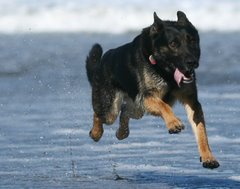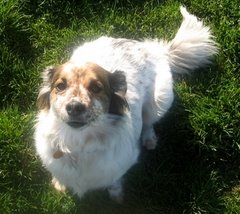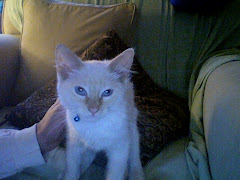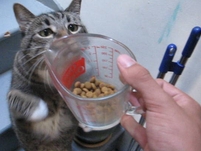Praise. You hear that a lot in dog training circles. Seems simple enough, but, what exactly is praise and what is the best way to give it?
Human nature tends to focus more when things are going wrong. Whether it be the car not starting, your child not cleaning his room, someone cutting in front of you in line or the dog chewing the leg off Grandma's antique dining table. These events usually call us to action. Believe it or not, dogs are similar. Everything is copascetic until it is not, then they will let the offender know under no uncertain terms! By conserving energy, and reacting only when something is wrong in the environment, both canine and human species have survived and thrived.
My little mixed breed, Tikka, does not go around giving Roman, my German shepherd, treats every time she catches him being good (for Tikka, 'being good' means, basically, stay out of my face and away from my stuff!). She never 'praises' Roman for not eating her food, chewing her toy or staying off her bed. How did Roman figure out what he could and could not do around her? By trying to do what he wanted to do, then getting nailed with an air snap and growl. She only had to do it once, her timing was so good, and now the two dogs live in perfect harmony. If Roman 'gets out of line', Tikka only need to give him 'the look' and he backs off.
Understanding this aspect of a dog's nature can go a long way when training your dog. Human society has evolved and most people live pretty cushy lives. Many dogs live cushier lives than many people! If you are reading this blog, you and your dog are probably not worrying about your next meal or being a next meal. In order to live in harmony in our modern human world, I believe dogs need to know what not to do, and this can be taught in a fair and kind way. BUT, dogs also need to know what TO do and this is where many people have trouble. Owners can learn how to motivate and reward their dog for doing the right thing. This is where praise comes in. Verbal praise is one form of reward to let your dog know when she has done the right thing and to motivate her to work with you. While I do use other types of rewards (food, toys and games) during the learning stage of training, I always make sure my clients understand the power of verbal praise when working with their dog. It is impossible to be consistent with treats and toys, but you always have your voice. Once a dog learns a behavior, we gradually reduce the use of treats but we always maintain the verbal praise. Praising your dog when he does something right increases the liklihood that he will do that behavior. This may seem so obvious and simple, but not so easy to remember when working our dog out in the real world (see second paragraph!). (a note about physical praise or petting. This type of praise can be overstimulating for some dogs, like my dog, Roman. On the other hand, if you have a dog that needs more encouragement, a nice pat in addition to verbal encouragement can help motivate him...a good dog trainer can help you figure out what type of praise works best for your dog and how to use your voice & timing to praise appropriately).
So, next time you have your dog out for a walk, try praising him to the high heavens every time he looks to you. Don't just say a flat, "goodboy", say, "WHAT a GOOD boy you are! That's IT! LOOK at YOU!" If off leash, don't give him any commands but tell him he is AWESOME every time he comes running up to you. If your dog is lying down and calm at home, tell her she is sooo very good. Be your dog's cheerleader and don't worry if strangers think you are nuts. By the way, this works with human children, too! In my elementary school classroom, I hand out 'caught being good' cards when I catch students making the right choices. I believe dogs are also emotional beings and when an owner tells her dog "Good job!", that's usually all it takes to get the energy flowing in a positive direction with a tail wag.
http://www.angelacasey.com/
*Are We Putting too Much Pressure on Puppies to Learn Obedience too Soon? *
*Originally published in slightly different form at PsychologyToday.com, on
11/...






1 comment:
Great post, I couldn't agree more. We lavish our little Lottie with praise (verbal and physical) when she is being "good" and i can tell that it has earned us a certain "capital" with her that we can use when we need her to get in line. In other words, she is so attached now to getting positive attention from us, that i can tell that when we speak harshly to her she feels "bad" about disappointing us (well, that's my anthropomorphic slant on it, anyway). I do believe that dogs - and children - need not only copious amounts of affection, but also well-measured directions about what is acceptable behavior (otherwise they feel adrift and act out).
Post a Comment